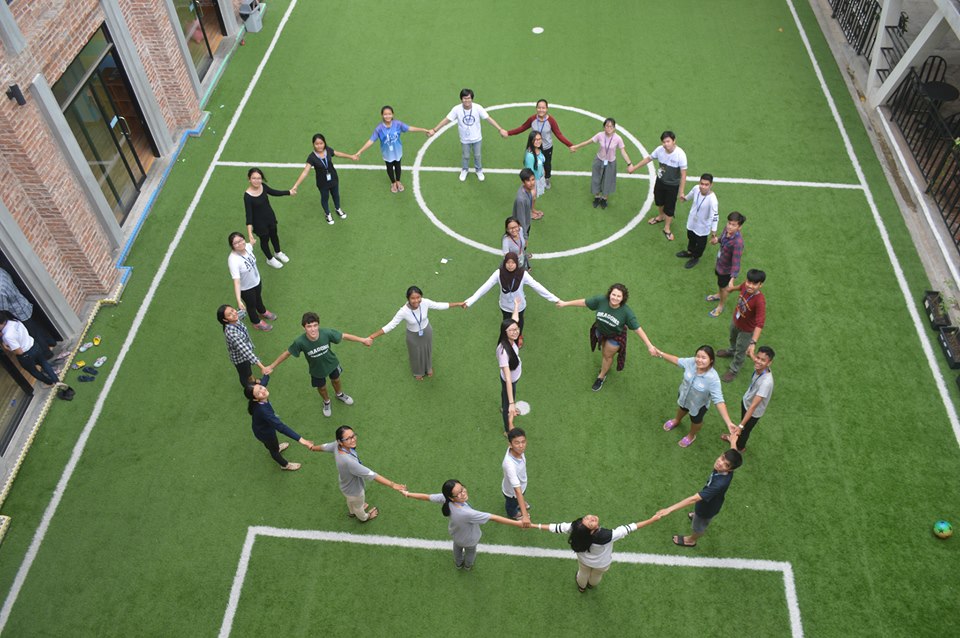By Kim Chham
Peacebuilding to me is such a huge concept and a goal that can only be reached if everyone in this world contributes to it. However, I am hopeful that humanity can reach peace. We are the ones who create conflicts and our society, thus I think we can shape our reality the way we want it. Granted, it won’t be easy and some of us have been given more privilege than others to make decisions that affect the wider community. This is also the part where I believe so much in peacebuilding, because we need to work with everyone, the ones at the top and at the bottom of the power structure. Relationships can be built a long the way, which will foster empathy and understanding, eventually and hopefully reaches peace.

In the past several years that I have gotten to know the concept of peacebuilding and the work in this area, I have found myself to be very intrigued in the preventative stage of conflict as part of peacebuilding. I am very interested in the differences of cultures, backgrounds and learnings that all people from different places experience and how these affect the values that we all hold. I also believe that it doesn’t matter where we are from or where we are in the world, humans tend to share quite a few core values. Hence, I love working with young people/youth to explore those values that we are still developing as well as the most important components that make who we are, identity. I have learned that knowing these core parts of ourselves helps us achieve peace in who we are, which also enhances more peaceful interaction with others – to build peace in our small community, which ultimately build peace in the wider world. Therefore I strongly believe that if we all understand each other better and have closer relationships with each other, we can prevent many of the conflicts that we have today.
Prior to attending college, I have had some experiences in peacebuilding as well as several community building projects. My passion and work with peace started in my second to last year of high school. Joining with about 50 other students of my age at an international high school that I attended, United World College of South East Asia(UWCSEA), I received training from the staff and teachers as well as guest speakers about how to facilitate a conference and knowledge about peace and conflict for a full school year. At the end of the school year, about twenty students, including myself went to Mae Sot, Thailand to run an Initiative for Peace (IFP) conference with about fifty youth from different ethnicities and social backgrounds in that part of Thailand. The participants were youth from Thailand, economic migrants from Myanmar and refugees who stayed at the UN refugee campus at the border of Thailand and Myanmar.
Seeing the success of integration and inspiration that everyone gained from participating in this conference, I went on to take a gap year after finishing high school to bring an IFP conference to youth in my home of Cambodia. This required many different skills, knowledge and collaborations with many different organisations in Cambodia to create a conference that fit into Cambodian context. I learned so much about leadership and I gained valuable community organising and local field work experience through the organising of both of these conferences.
Since arriving at my college in North East Iowa, I have been seeking opportunities to be involved in peacebuilding and community building work. I have helped organise and run a few identity workshops on campus, in the purpose of fostering better understanding between different groups of students. I have attended the Nobel Peace Prize Forum in Minnesota twice and learned a lot from experts in the area of peace and conflict. As of most recently, I had spent 7 weeks this summer conducting a collaborative research with a faculty at Luther College (where I am attending) on community and peacebuilding in Decorah, Iowa (where Luther College situates). I had spent most of this time interviewing and learning about the context of this community, finding out what people see as assets, strengths, weaknesses of this town and what they think is needed to happen in terms of community and peacebuilding. After this summer, I am hoping to continue learning more about this community and move to the next stages of the research, which are tentatively learning about different peacebuilding methods around the world, to then identify which one or which combination might be most beneficial to implement in Decorah. I hope to run a few workshops with a few different groups of people in town, including the college students, before I graduate. After that, I am planning to evaluate the ground work, build a better toolkit that I may be able to hand off to another student or group of people who would want to continue this work.
The key element about SPP that resonates with me the most is the peacebuilding skillsets from theories and practices. I am very fascinated to learn that SPP offers a course of learning as well as doing. I consider myself a very passionate learner in the classroom but also an active learner in the field. I am keen to learn from other passionate peace builders, be them older professionals in the field or other young learners and activists. Therefore, my expectations for this program are the learn as much as I can from everyone whom I will meet, build connections and possibly collaborations in peacebuilding work and share what I know when I can. By doing this, I hope to learn new concepts and practices of peacebuilding, that I can then transfer to my current research project, as well as further work that I will be doing in this field.


